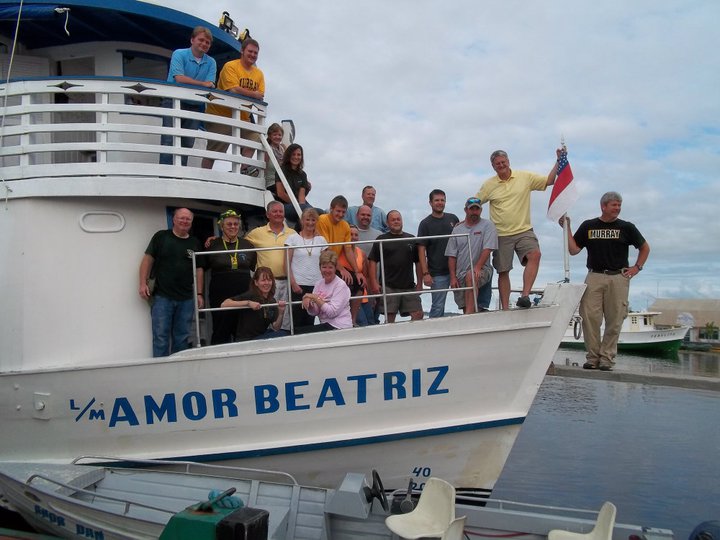Lessons from the Brazilian Rainforest
Sam Rainer
The paint team needed one more can. The construction team needed a few more tiles. The water team needed one more day to finish a water wheel. The medical team encountered unseen hurdles. But the frustration of unfinished projects in the Amazon jungle only made our group think about the unfinished work of the gospel.
One of the joys of being called to pastor FBC Murray was joining a multi-generational partnership with AMOR to reach the people of the Amazon Valley in Brazil. Our church has been on numerous short-term mission trips with AMOR, ministering to many villages in the Wai Wai nation. This trip, however, was different.
We heard from the chief of one of the villages. He wanted help in going to an unreached tribe—off the radar of anyone else. We heard from the head of AMOR. He wanted to begin a strategy to go beyond the established perimeters of mission organizations. Several of our people felt the call to help, and we have begun the process of adopting an unreached people group and funding efforts to reach them.
I’m proud of my church and honored to have such passionate gospel partners.
There were several highlights of the trip—eating tapir to celebrate the New Year, sleeping in a hammock for two weeks, and somehow managing to carry a few burrowing fleas back with me. More importantly, I had the privilege of getting to know several FBCers a little better. While our team had several personal stories, allow me to share with you some general benefits of short term mission trips I saw in our trip through a Brazilian rainforest.
Awareness. The unfinished tile work, unfinished water wheel, and unfinished medical work only highlighted the unfinished gospel work. We didn’t quite accomplish our planned tasks, but God used this incomplete work to reveal how we needed to begin a new work with an unreached people group. Our unfinished work gave us an awareness of a greater purpose beyond the current gospel perimeter. No one on our team returned satisfied with a job well done. Rather, everyone was unsettled about those who had yet to hear the gospel.
Diversity. Paul writes in Ephesians of unity in diversity. Work at the local church level is best accomplished when a diverse group unifies around the gospel. Our team consisted of varying ages, backgrounds, and socioeconomic statuses. The differences that would otherwise pull us apart pushed us together when we focused on doing gospel work.
Pace. Every culture is different. I knew this fact in my head. However, experiencing a much slower culture helped me realize how much I need to slow down and focus on what matters most.
Style. Our team learned firsthand the dangers of imposing on others what some may call the only Scripturally-supported worship style. It may feel comfortable at home, but it is a disgrace to the gospel (and a lack of appreciation for other cultures) to say “our way is the right way” with worship style.
Fitness. Stay in shape. God just might call you to spend a couple of weeks—or a lifetime—in a place that requires you to walk miles at a time through difficult terrain. We hiked through rainforest jungle and spent a day in a dugout canoe braving rapids. Those called to go on our trip had to be in decent physical shape.
Shared leadership. The best vision is collective. The best goals incorporate the ideas of many. On our trip, everyone learned to be in charge of something. And everyone learned to follow someone else’s lead. No one was in charge of everything, and everyone led something.








Well said.